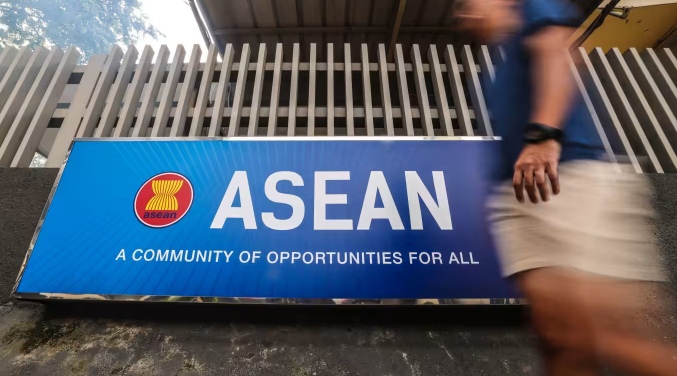Southeast Asian foreign ministers will gather in Laos this week for a series of meetings as a shadow of instability hangs over the region, highlighted by civil unrest in Myanmar and tensions in the South China Sea, The Straits Times reports.
Following the ASEAN foreign ministers’ meeting on July 27, Laos will host two summits on key global issues, with officials from the United States, the European Union, Japan, China, Russia and other countries attending.
ASEAN foreign ministers will discuss so far fruitless efforts to end the devastating conflict that has escalated into a civil war in military-ruled Myanmar that has displaced 2.6 million people, according to the United Nations.
ASEAN’s largest members, including Thailand, Indonesia, Singapore and Malaysia, are frustrated by the junta’s unwillingness to honour its dialogue commitments, testing the bloc’s credibility and the viability of a peace plan agreed months after the 2021 coup.
It is unclear what progress, if any, Laos has made as chair of the bloc in advancing the previous Indonesian chair’s work with Myanmar’s generals and its armed opposition.
A senior Indonesian foreign ministry official, Sidharto Suryodipuro, said the issue was complex and would take time to resolve, with Laos actively engaged in trying to bring peace. He said at a briefing last week:
Diplomatic efforts cannot end overnight. Progress is slow … these efforts are being made cautiously. Under the Lao chairmanship, the special envoy is reaching out to many parties.
Maritime tensions
ASEAN is expected to push for the finalisation of a drawn-out code of conduct with Beijing in the South China Sea – an idea floated in 2002 and implemented since 2017, with years taken to agree terms to discuss its contents.
The urgency of the talks has grown amid an ongoing standoff between Beijing and the US-backed Philippines over disputed reefs in Manila’s exclusive economic zone, with Manila and Washington accusing the Chinese coastguard of hostile actions.
China insists Philippine vessels are trespassing on its sovereign territory and accuses Manila of deliberate provocation. According to senior diplomat Theresa Lazaro, the Philippines will propose in Laos the creation of an ASEAN Coast Guard Forum to establish dialogue and enforce laws. This plan is likely to irritate China.
Indonesia hopes to have a code in place by 2026. But some security analysts doubt a binding text will be possible, as some ASEAN countries insist it be based on the UN Convention on the Law of the Sea (Unclos).
China says it supports the code but does not recognise a 2016 arbitral tribunal ruling that said its claims to most of the South China Sea have no basis under the UN Convention on the Law of the Sea.
International support
US Secretary of State Antony Blinken is expected to push for international law in the South China Sea, through which US$3 trillion (S$4.03 trillion) in annual trade passes, during a weekend summit attended by Chinese Foreign Minister Wang Yi.
They will be joined by counterparts from Japan, South Korea, India, Australia and Russia, including at the East Asia Summit on July 27 and the security-focused Asean Regional Forum.
The summits are expected to discuss issues such as the war in Gaza, the conflict in Ukraine, food security, climate change, trade protectionism and North Korea’s nuclear ambitions.
